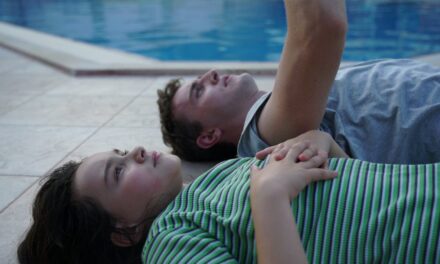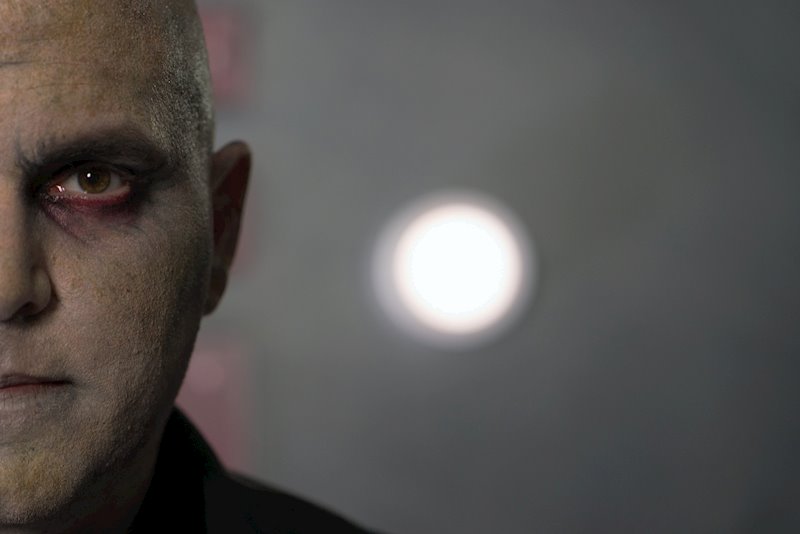We tend to remember the big events in life. Graduations, marriages, heartbreak, and perfect days surrounded by friends stick out to us. Those big events don’t exist in a vacuum, though. We don’t as clearly remember the hours of studying before exams, the strengthening bonds of friendship building up, or the gradual decay and crumbling at the foundation of a relationship. It might serve us well to focus more on some of those moments. There are lessons to be learned and intense emotions to be felt in those small moments. Amber Bain, under her musical guise of The Japanese House, has turned her eye away from the monumental and towards the quiet. Her debut album Good At Falling is a project concerned with the smaller moments in music and in life, the areas where the big moments first begin to take shape. The result is an album full of musical wonder and an intense, unflinching look into Bain’s emotional journey.
While Bain’s personal growth and experience are the major focus of the album, it’s impossible to ignore her growth as a producer as well. Good At Falling is an impeccably constructed album and was entirely written and co-produced by Bain. From the beginning of “went to meet her (intro)” to the end of “i saw you in a dream,” Bain utilizes all the tricks and ideas she’s conceived as The Japanese House. Echoing percussion and murky synths swirl in harmony as her voice buzzes through electronic filters on “went to meet her.” The strings and chimes blend into quieter moments on lead single “Lilo.” Piano chords mix with the grimiest synths you can imagine to create a love letter to the ’80s electronic scene on “Everybody Hates Me.” Bain has never been one to shy away from whatever musical impulse grips her in the moment, and getting all of these instruments and musical ideas to work together and strike a balance is a truly impressive feat.
Good at Falling spreads the brilliant execution out across all thirteen of its tracks, so much so that no one track rises above the others. This might sound like criticism, but it is not. The whole album feels like one living entity, evolving in feeling and sound as it goes. In this way, the music reflects the emotional beats of Bain’s life she has chosen to share and the human experience as a whole. There’s so much emotion in the minutia of everyday life, and she dives into those details at will. “Everybody Hates Me” sounds like it should be about one big moment where things turn and those thoughts of doubt appear in your head, but that’s not how those thoughts work in real life. They slowly creep in, and the growling sound on the track coupled with the gradual reveal of the depths of those feelings in Bain’s lyrics reflect that. Even the genuine peace found fleetingly in “Lilo,” while spurred by a specific moment in Bain’s life, conjures the drifting vision of a flower on the water as a quieter reflection on life as a whole.
Nowhere is this more apparent on Good At Falling than during the back-to-back of “Maybe You’re The Reason” and “We Talk All The Time.” The first finds Bain searching for purpose, but failing. There’s no big revelation of her lack of reason in life, and in fact she remains largely apathetic. “And I think I’m dying/Cause this can’t be living. Should I be searching for some kind of meaning? Apathy’s a funny feeling,” she sings, and highlights another truth about the more mundane parts of life: even apathy–the absence of emotion–is its own particular emotion. This extends to “We Talk All The Time,” a death knell in a relationship that just fades out. There’s no dramatic blowup in those shimmering keys, just the slow disintegration caused by time passing by. What should be the climactic emotional beat of the song in the line “We don’t fuck anymore, but we talk all the time so it’s fine” is instead delivered like Bain is telling us the weather.
If the lack of big emotional beats sounds frustrating, it’s because it can be. Bain is not interested in providing resolutions on Good At Falling. It’s not that the album is unemotional, because it’s not. “You Seemed So Happy” is filled with gutting sadness. “f a r a w a y” rings with an unspoken connection. What Bain has so beautifully captured is that often there isn’t a payoff for these emotions. We feel things, and our emotions carry on and on until they don’t. That truth can make Good At Falling a challenging piece of art to wrap your mind around, but the execution and the truths found within make it well worth that challenge.
The Japanese House is Amber Bain’s conduit from herself to the world. Through her music she has taken her wisdom and her talent and turned it into something we can all reflect on. In many ways, Good At Falling is specifically built to occupy those quiet emotional moments of reflection in our lives. Not every moment is a big one. The Japanese House shows us those moments don’t have to be big to matter.













